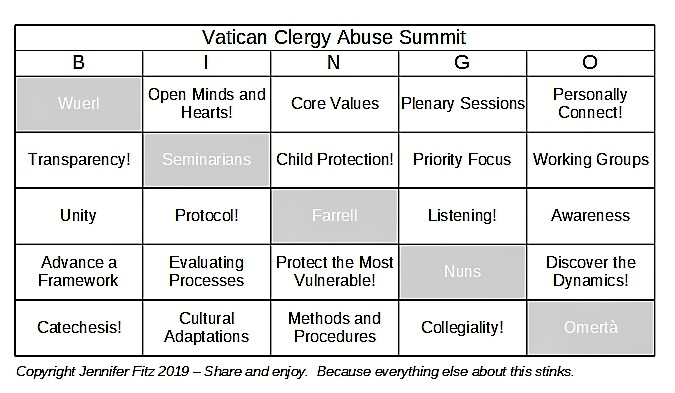It is the time of year when I get flooded with reminders about Dysautonomia Awareness Month. I’m aware, thanks. I’m not a big fan of colored ribbon empathy-signalling for any disease, so we can skip that. I’m going to save the “How’s it going, Jen?” post for another time, too. Let’s skip this year straight to the info that is useful for anyone headed to the doctor about those weird symptoms.
Refresher: What is Dysautonomia?
You can skip this part if you already know.
Your autonomic nervous system is the part of your body that makes things work without you having to think about it. Your heart beats, your innards digest, your temperature regulates, and your blood pressure presses, even if you completely ignore them.
Autonomic dysfunction, or dysautonomia, is when that system doesn’t work right. When your blood pressure fails to compensate when you stand up. When your stomach declines to empty. When your heart decides to beat to the rhythm of its own drummer.
It’s complicated (we’ll get into that again in the next section) because of course you might have problems with these symptoms due to some other disorder. It’s double-complicated because you can have autonomic dysfunction as a complication of an ordinary disease (like diabetes), a horrendously complicated disease (like certain inherited mitochondrial disorders), or just cause.
So “dysautonomia” is a bit of an umbrella. It’s like saying “I have stomach problems” or “lady troubles” except more scientific sounding. But just like you need to know that your digestive and reproductive tracts sometimes require medical attention, it is important to know that your autonomic nervous system is a part of your body that can malfunction.
What happens when you don’t know about this is what I’m writing about today.
Problem 1: Don’t Be So Nervous!
If you’ve ever felt your heart race, your stomach churn, or your hands sweat when you were nervous, you’ve felt your autonomic nervous system doing one of its things.
This creates a tricky dilemma: Say you go to the doctor because you are short of breath, and all the tests show your heart and lungs are just fine. Are you just really anxious?
Maybe you are. You’ll probably get referred for a psychological evaluation. What you need to know is that many forms of dysautonomia have surface similarities to the physical side of anxiety disorders. How do you know the difference? For one thing, anxiety disorders involve being anxious.
So here’s the layman’s differential diagnosis:
If your stomach churns every time you walk past your boss’s office, regardless of the time of day or what you’ve eaten or how much sleep you got or whether your boss is wearing way too much cologne or not — if there is no physical reason for your boss’s office to make you ill — and you feel fabulous otherwise, it’s probably anxiety.
But if your stomach sometimes churns while you’re chilling out watching your favorite movie, or relaxing with your family on a vacation you genuinely enjoy (don’t lie), or on the day when you and your boss whom you love are on a roll achieving great stuff . . . that doesn’t sound like anxiety. It is highly unlikely you are secretly anxious and have no idea. The physical symptoms of anxiety tend to correlate with anxiety. The physical symptoms of dysautonomia are not dependent on your emotional state.
Some minor complications to remember:
- You can be a person with a known anxiety disorder, but also have a dysautonomia. There’s no numerical limit on how many diseases you are allowed to have.
- You can be a person with dysautonomia who develops anxiety symptoms related to the stress your illness causes. People with cancer or typhus or foot-and-mouth disease sometimes get anxious about their condition, so if you worry about your life sometimes, you’re not exactly a pioneer there.
Therefore do some reality checking. If you get faint with prolonged standing, that’s probably dysautonomia. If you get faint at the sight of blood, that’s probably anxiety. If you get faint under both instances, it’s probably two different problems that have similar symptoms.
(Or maybe you have a pathological fear of standing, and also a latex allergy you’re unaware of, because you think it’s just fear of needles. But it’s more likely you have POTS than a pathological fear of standing, despite the thirty-seven physicians who looked you straight in the face and told you to get a hobby, because it never occurred to them to do a tilt-table test. Tell me about your childhood . . . did you have to stand a lot? How did that make you feel? Did your mother do a lot of standing around you? . . . )
Problem 2: You Just Need to Exercise!
Your body works better if you use it regularly and well. Lots of people are overweight and out of shape, and when they make the decision to eat sensibly and get out for a walk every day, they find they feel much better.
What you need to know is that some forms of dysautonomia can present like you just need to get more exercise, but actually they are a disease process that inhibits your ability to exercise.
In my case, my diagnosis of IST (Inappropriate Sinus Tachycardia) hinged on the fact that my treadmill testing looked like a basic model “she needs to work out more” case, except that I didn’t actually need to work out more.
I presented with shortness of breath on exertion, but every test came back normal. If I had been overweight, I would never have been diagnosed, period.
The only clue we had that I had a tachycardia and not a fitness problem was that (a) my symptoms came on too suddenly to be deconditioning and (b) I wasn’t fat enough. I “passed” all tests with three different specialists, because I was healthier than any of their usual heart-attack or COPD patients. Because of my underlying fitness level and experience as an athlete, I had the ability to push myself on a treadmill despite feeling horrible, so I’d score in an “acceptable” range. (Even if I was gasping for air in order to do it — they didn’t chart that. Just the number. Hmmn.) It took a really fat doctor who knew his own numbers and who liked to geek out on technicalities to pick up that something wasn’t right in what he was seeing.
So here is my firm advice: If you are tired and intolerant of exercise, and you try taking the usual steps to improve your health but it seems like it’s just impossible, or like you just can’t do it and you keep falling off the wagon, dig deeper. There are a number of endocrine disorders that can cause this problem, there are some dysautonomias that can cause this problem, and there are who knows how many other things as well.
You’ll have to go through all the other first-line tests looking for obvious stuff (if you have a pulmonary embolism, you need to know that ASAP, so rule it out, please). But if that all that comes back normal and you are still pretty sure there’s something wrong, start looking at dysautonomia as a possibility.
“Failure as a human being” is not a medical diagnosis. Find a doctor who doesn’t shove you off, and keep looking until you figure out what’s wrong for real. After you’ve addressed the underlying health problems that are sabotaging your efforts, you’ll find that the triad of healthy diet, exercise, and stress management actually starts to work for you.
And that’s why you should be aware of dysautonomia, and some of the other ribbons in the rainbow as well.
Follow-up Reading: Here’s a post from a health care professional who didn’t believe in dysautonomia until it happened to her.

Artwork: Mihály Munkácsy [Public domain], via Wikimedia Commons












